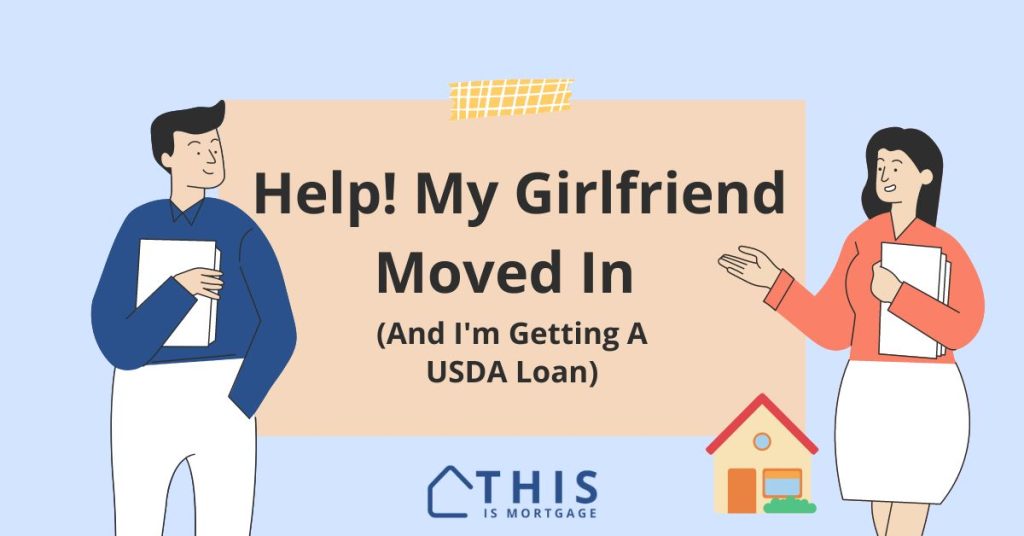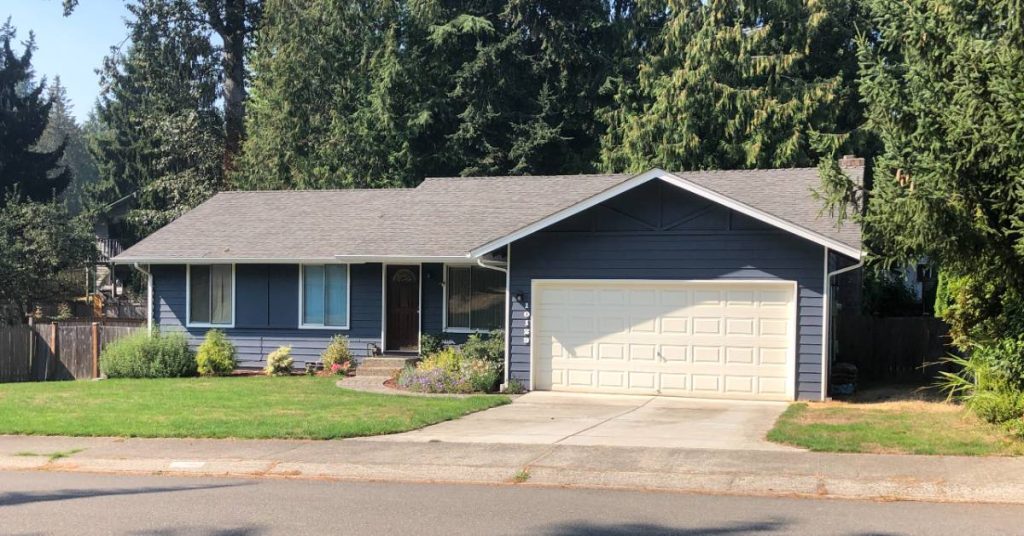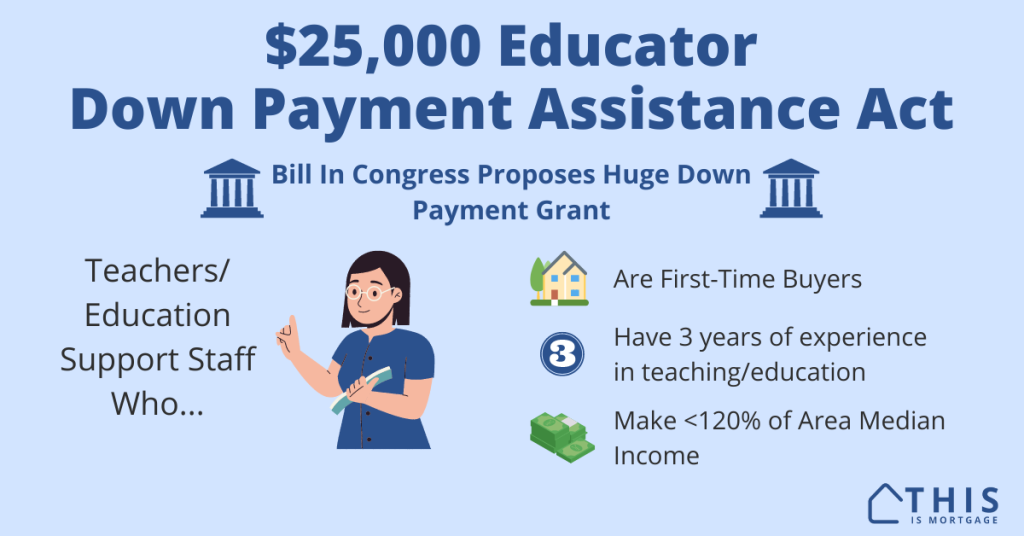USDA loans are different than most other loan types because if someone moves in with you before you buy, they could derail your approval.
Sounds strange right? Wouldn’t an extra person in the household make it less likely that you’d miss a payment?
While that’s true, USDA loans come with strict income limits. They are meant to provide housing for low- and moderate-income homebuyers. A girlfriend, boyfriend, or roommate who moves in months before you apply could push you over income limits, thereby making you entirely ineligible for a USDA loan.
See if you can become a homeowner with a zero-down USDA loan here.
A girlfriend or boyfriend is planning to move in before closing
For program eligibility, USDA considers any household income that will continue over the coming 12 months.
This is why it’s a real problem if someone moves in with you. The lender will look at your current living situation and include all household income.
If you and your significant other’s combined income is below local USDA income limits, living together before loan closing is not a problem.
However, let’s assume you make $100,000 per year and the USDA income limit for your area is $103,500. Even if your girlfriend makes only $5,000 per year from an Etsy side business, she pushes you over the limit.
The best solution is to delay that significant other from moving in and put no timeline on it and make no plans around living together.
This is because you will have to certify that you do not expect your household income to change in the next 12 months. Buy the house and close the loan. Ideally, the significant other moves in 12 months later. If you decide to move in together earlier, well, life can be unpredictable like that.
For the USDA Guaranteed program (the type offered by lenders and the majority of USDA loans), there’s no post-closing re-check of income. For the Direct loan (received directly from the government) there is an annual review of new income, so your significant other should not move in after closing.
All that being said, the program could always change. So any plan or non-plan to have your girlfriend or boyfriend move in after closing comes with risks. The USDA takes household income very seriously.
Speak to a lender about your USDA loan eligibility.
A girlfriend or boyfriend has already moved in
It’s a tougher situation if a girlfriend, boyfriend, mother-in-law, roommate, or someone else has already moved in with you and their income pushes you over USDA income limits.
The short answer, if you want a USDA loan, is that they will have to move out and document a new living situation for three months. This is true even if you legitimately just broke up.
For instance, there’s evidence that you were living together as a family unit (i.e. his or her name was on your current lease). You would have to provide proof of their separate residence such as a lease agreement for their new apartment. It would have to be at least three months old. If they just moved out, you would have to wait for 3 months before getting a USDA loan. (See page 52 of the PDF here)
The exception to the three-month move-out is if your boyfriend or girlfriend is a full-time student. According to USDA, you only need to count $480 in income for a non-spouse, full-time adult student who is not on the loan.
If you can’t document the three-month separation, you might consider an FHA or conventional loan, which don’t have income limits. Your upfront cash requirement will be higher because you’ll have to come up with at least a 3.5% down payment. With USDA, you just pay USDA closing costs.
What about a roommate?
In the case of a current roommate, you can write a letter of explanation stating they will not be living with you in the new home. You may also need a signed letter from the roommate detailing their plans after you buy the home.
Related: Can I Have a Roommate With a USDA Loan?
What happens if I get married after a USDA loan?
It’s probably okay if you get married after getting a USDA loan. The “Guaranteed” or regular program that you get from lenders does not require a post-closing income check. The Direct program does, but these loans are rare.
That being said, the underwriter can still deny the loan if she knows you will get married within 12 months of closing. This assumes the future spouse will live with you and push you over income limits.
The underwriter has the job of uncovering aspects of the loan. For instance, the underwriter might see a $500 purchase at a wedding cake shop or a $1,000 deposit for a wedding venue on a bank statement. This could prompt more questions.
An honest conversation with your loan officer upfront usually won’t hurt. They can advise you about what you should and shouldn’t disclose during the application process.
Speak to a loan officer about your USDA scenario.
Household income is not the same as qualifying income
Here’s how USDA looks at income, which is different than any other major loan type. It considers income in two different ways simultaneously.
Qualifying income: This is income that helps you qualify for the loan. The lender will use income from everyone on the loan and compare it to current debts plus the future home payment. Debt and housing payments should be around 40-45% of qualifying income.
Household income: Lenders add up all income from everyone in the household whether they are on the loan or not to determine whether income falls within income limits. This includes a girlfriend or boyfriend, age 18+ son or daughter with a part-time job, Uber income that you make on the side, a mother-in-law who collects social security, etc. It’s almost as if they want you to report how much money you find in the couch each month.
Bottom line
It’s a tricky situation when a significant other is planning on moving in with you prior to getting a USDA loan. Even trickier if they’ve already made the move.
That’s why you should start planning a year or more in advance if you want a USDA loan. Be cautious of extra income, raises, bonuses, and household members that could push you out of eligibility.
USDA loans are one of the few zero-down loans left, and it’s a big disappointment to find that you’re ineligible because of what seems like a trivial point. Tread carefully leading up to applying for USDA, and you’ll end up with a great loan and a great home.




